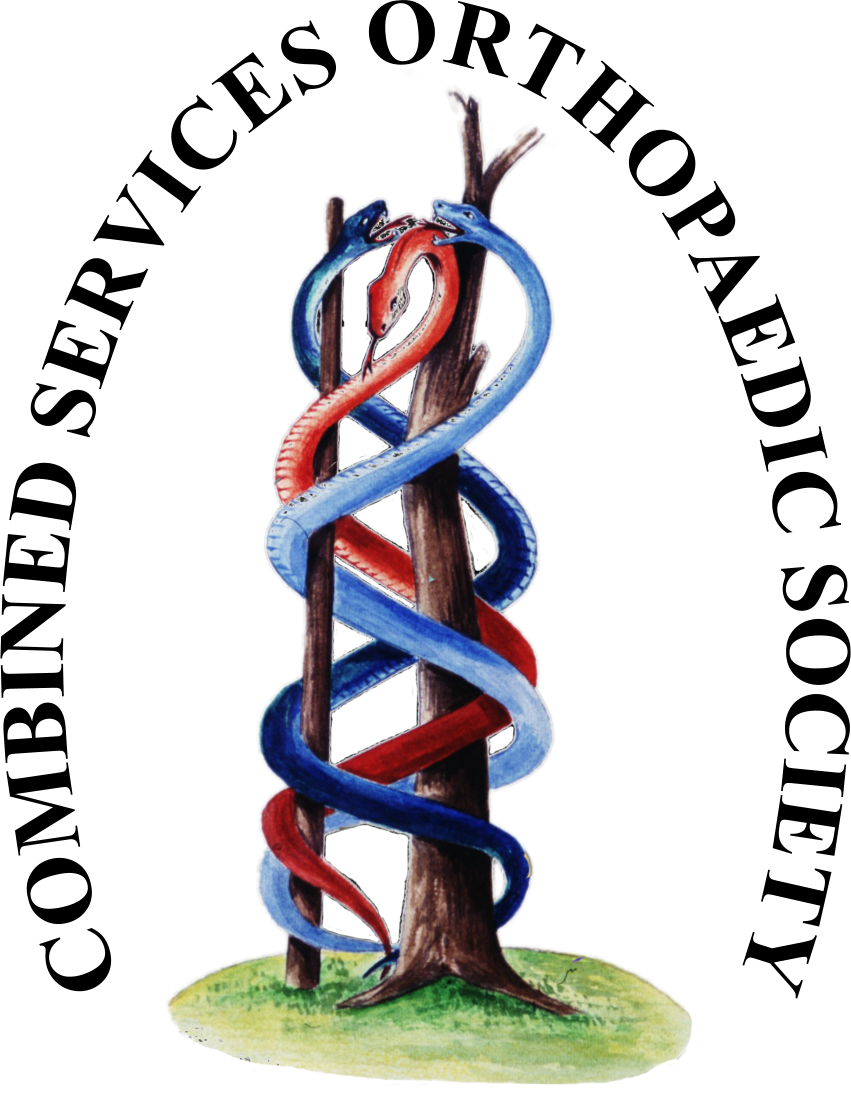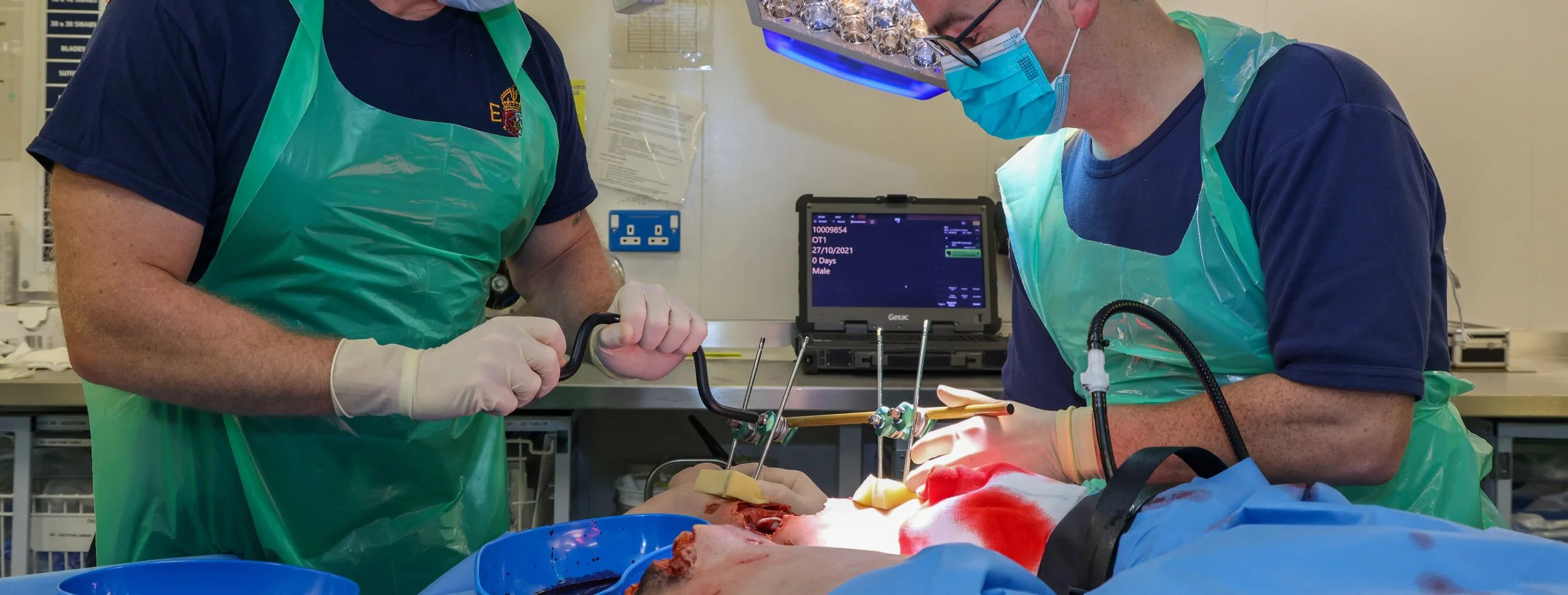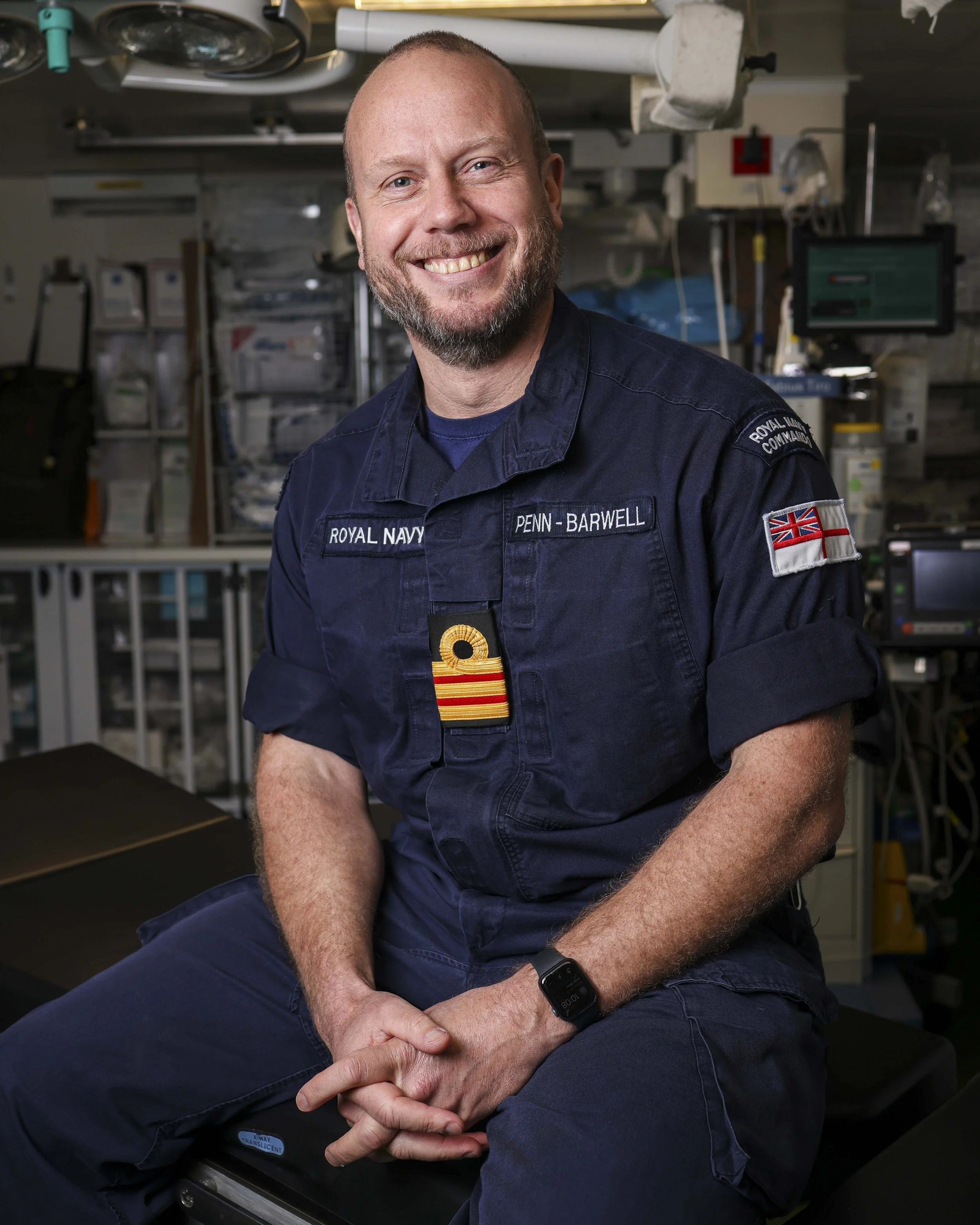The Combined Services Orthopaedic Society was formed 50 years ago with the explicit purpose, defined in its founding constitution, to promote Trauma and Orthopaedic training in the Defence Medical Services.
The role of the instructional CSOS (iCSOS) program is to deliver on this vision and provide military T&O surgeons in training with the foundational knowledge, skills and professional mindset to get the most out of civilian training so they are prepared as fully as they can be for their Military Operational Surgical Training and their first deployment as a Consultant.
The vast majority of the knowledge and skills required to provide deployed specialist Orthopaedic Trauma Care are gained via UK surgical training schemes and maintained with a consultant practice caring for patients with life and limb threatening injuries. All military surgeons ‘top up’ these skills by attending the Military Operational Surgical Training (MOST) course every 3 years.
“Military Medicine is highly specialised. Due to the environment and conditions in which it is frequently practiced, the procedures will not always be the same as those in home base locations. The standards of care available can have a permanent effect upon outcome and the effects of poor quality can rarely be reversed later.”
- AJP 410
iCSOS will prepare surgeons for their first MOST course and ensure they are aware of the context that they will be operating in when deployed.
In addition to clinical training, we seek to avoid the inevitable loss of professional military knowledge that is hard-won during initial officer training and GDMO years and ensure DMS military surgeons maintain the high level of professional military knowledge necessary for their role as senior officers with a responsibility for planning and delivering deployed medical care. This also serves to prepare them for the Armed Services Consultant Advisory Board (ASCAB) at the end of their training.
icsos will deliver a three-year training program delivered by a blend of distance learning and in-person training at the annual CSOS conference. Trainees will cycle through the course twice prior to Certification of Consultant Training (CCT).
Domains
a. Deployed Surgical Care. The organisation and logistics associated with being able to provide surgical care in a deployed setting.
b. Surgical resuscitation. Knowledge, skills and techniques required to achieve haemorrhage control and preserve life.
c. Combat wounds. Knowledge, skills and techniques required to salvage limbs and facilitate later reconstruction.
Objectives
a. Develop trainees’ cognitive framework to allow them to better understand their future deployed role.
b. Provide the theoretical knowledge of military surgical practice for trainees to maximise the learning opportunities in their civilian clinical training and recognise which elements will apply in the deployed setting.
c. Allow rehearsal and simulation of Military relevant surgical techniques which are unlikely to be encountered in civilian training.




